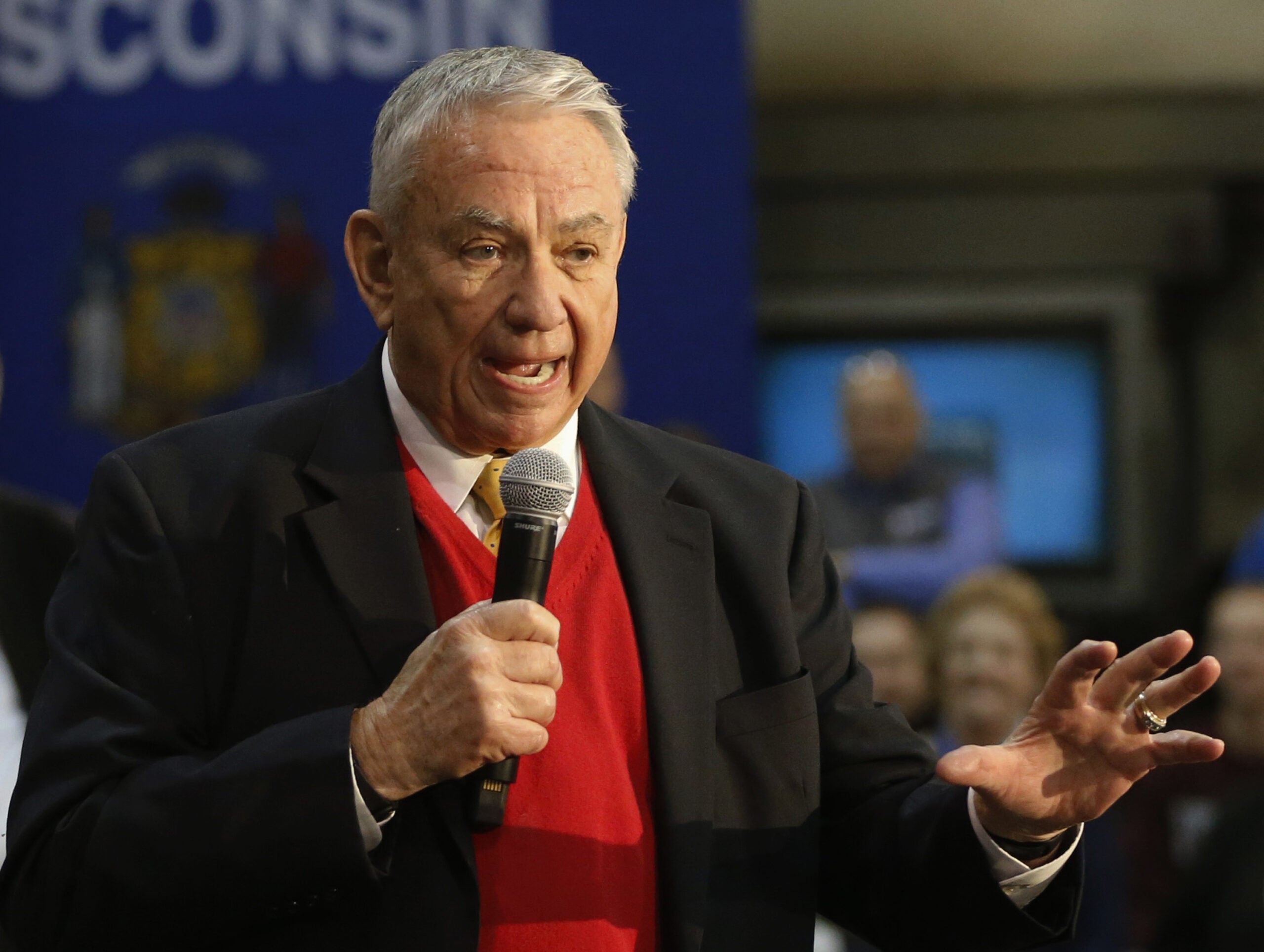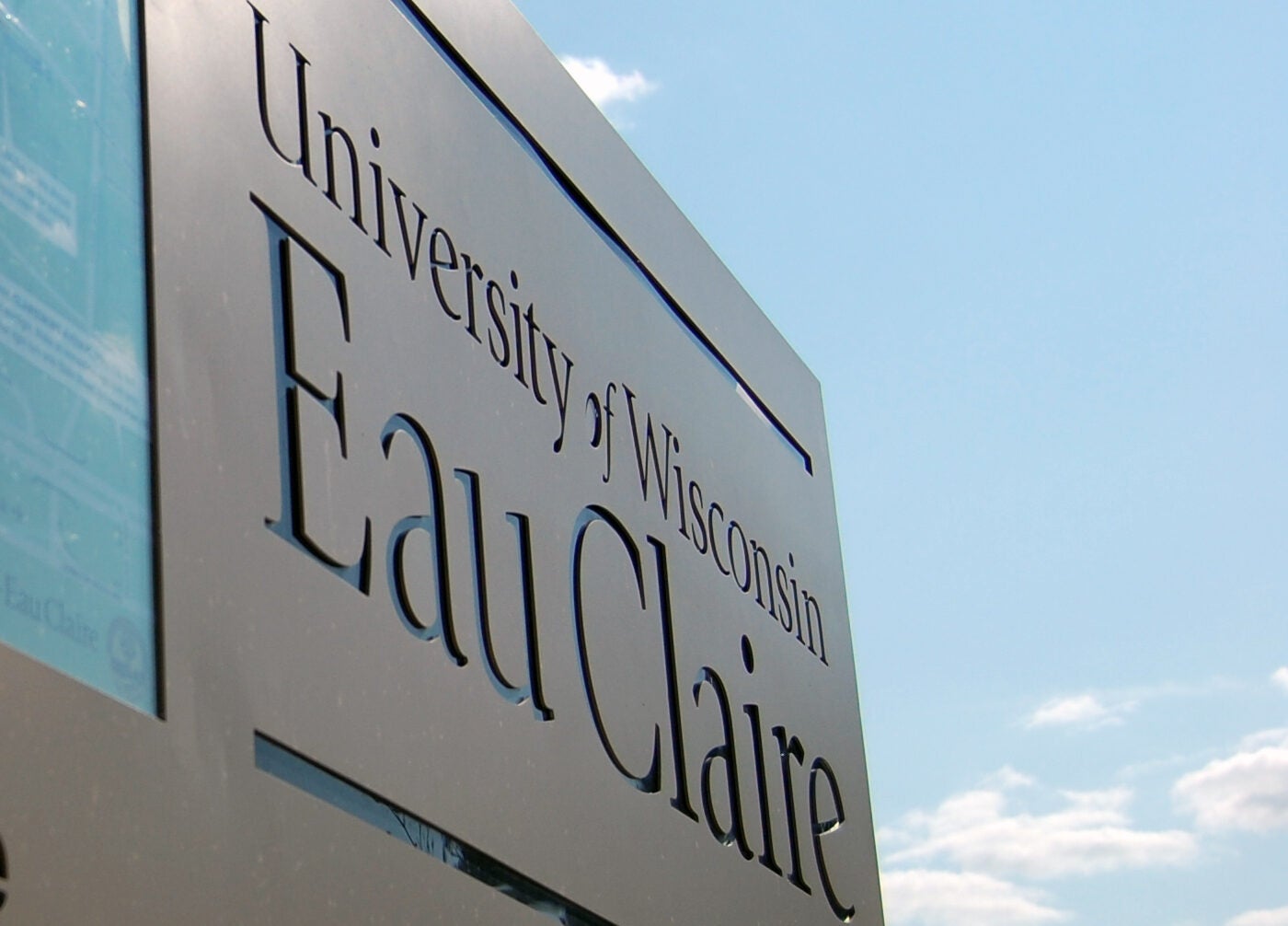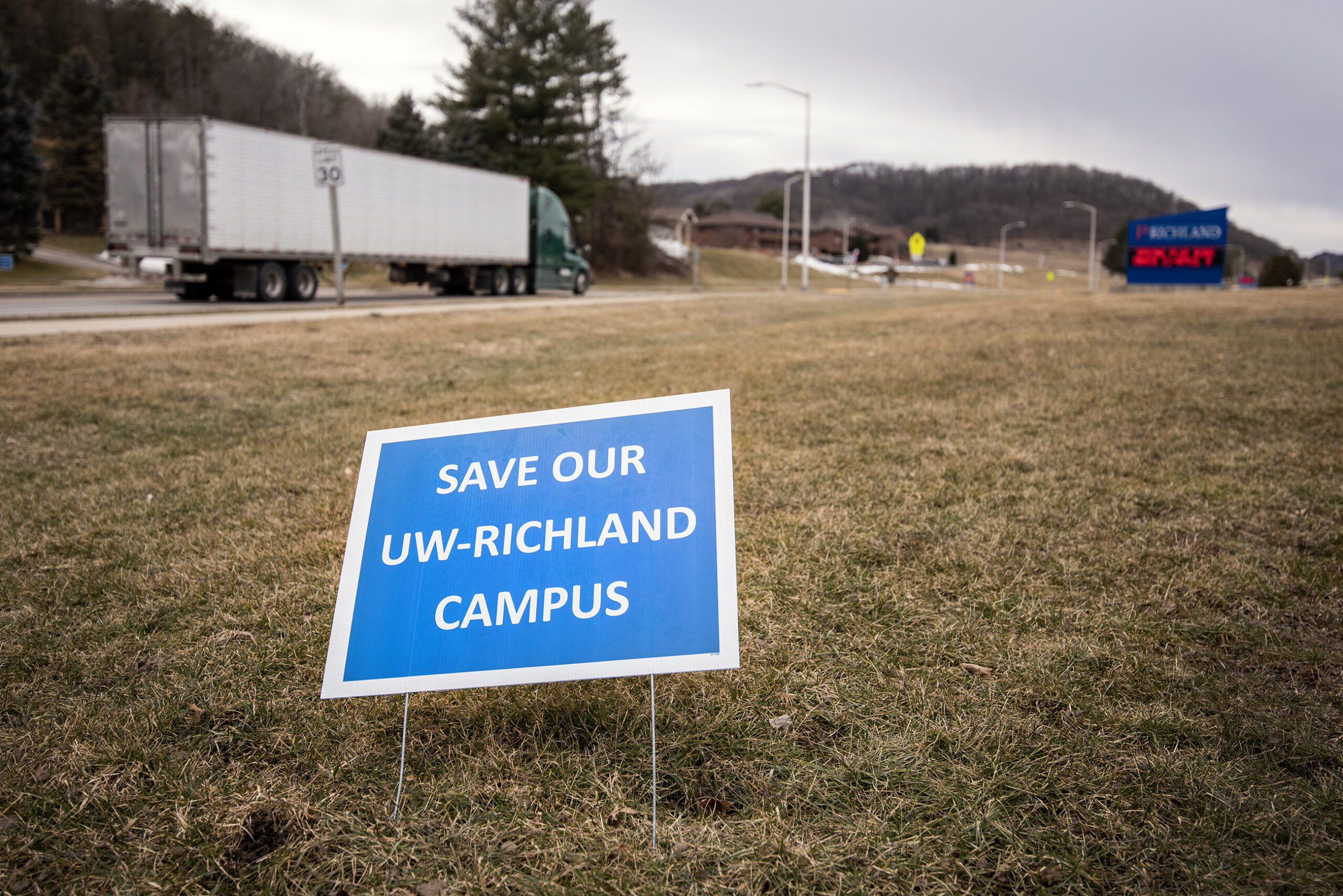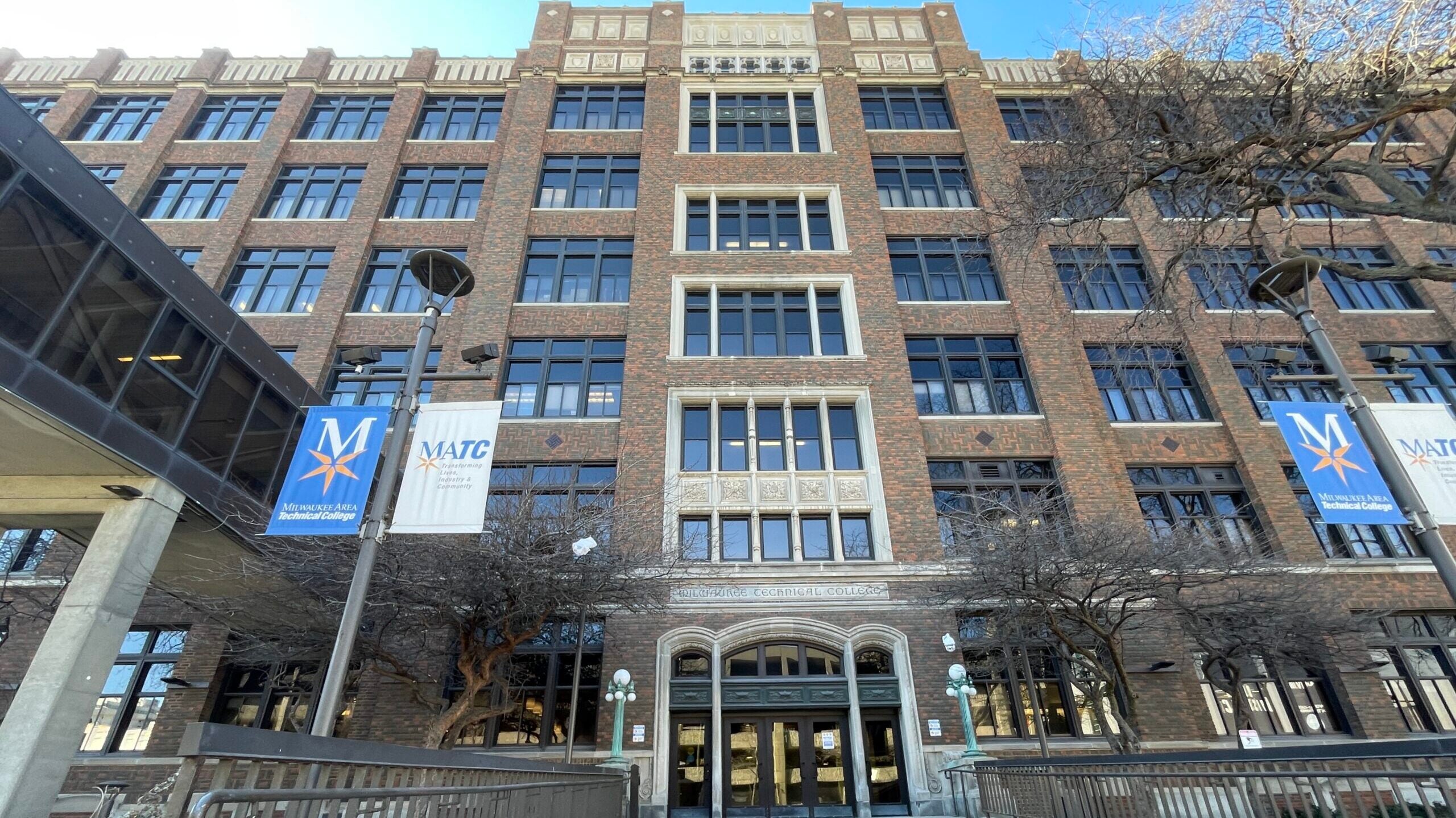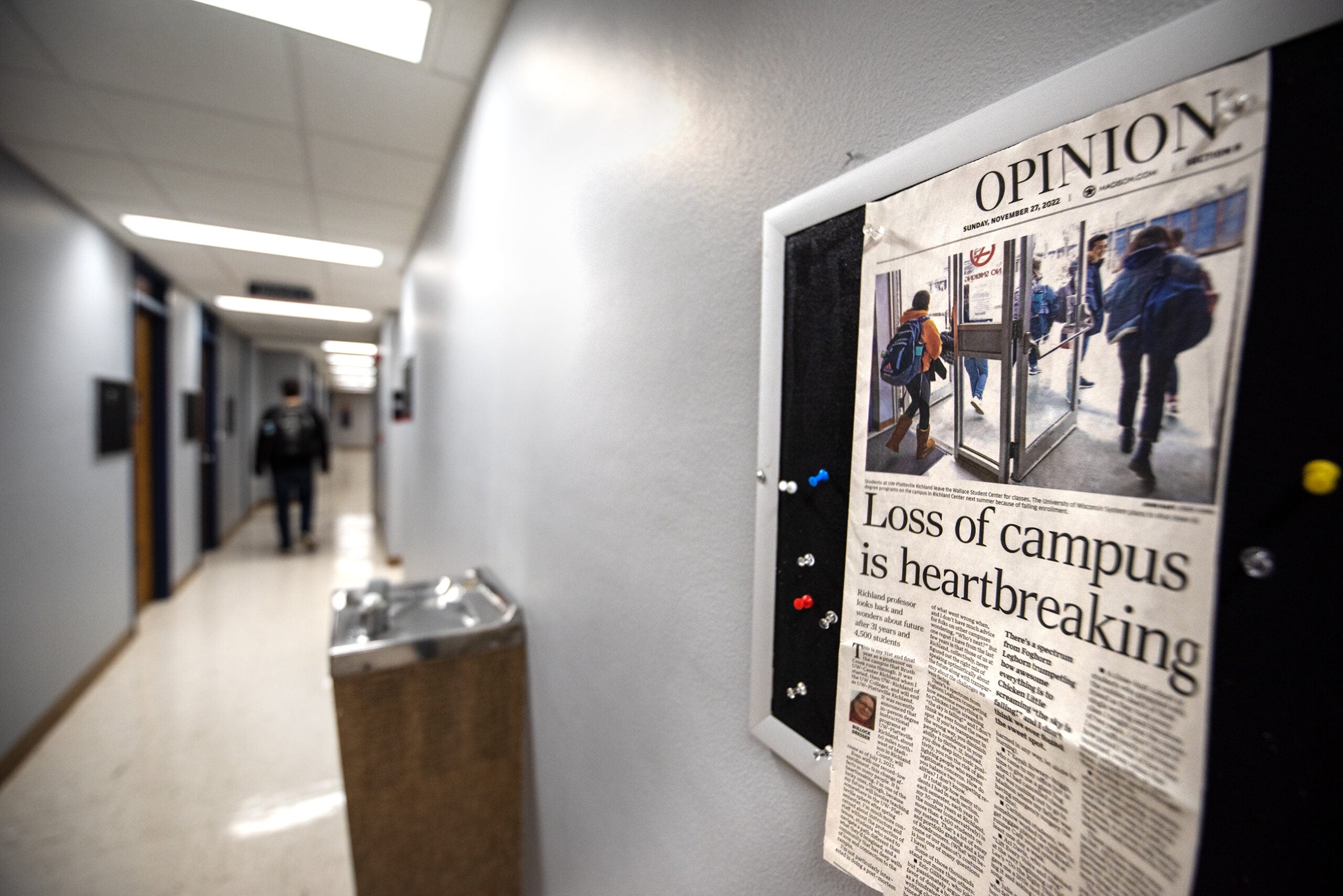University of Wisconsin System Interim President Tommy Thompson says he wants to transform one of the state’s prisons into a college for inmates.
Thompson will pitch the “UW System Prison Education Initiative” to the UW Board of Regents on Thursday. Thompson, who oversaw a large expansion of Wisconsin’s prison system when he was governor in the 1990s, told WPR the initiative would also include technical colleges, private colleges, businesses and the Wisconsin Department of Corrections.
“My ultimate goal — but that’s in a year or two or three years — is to have one prison turn into an educational institution,” Thompson said.
Stay informed on the latest news
Sign up for WPR’s email newsletter.
“And instead of having a swinging door coming in and going out and coming back, I want this to be an educational opportunity,” he said. “So, when you leave prison, you’re going to have a job, a meaningful job, and be able to go on and make your way.”
Thompson said he’d like to start with a small class of 315 inmates, and eventually hold a graduation ceremony at Oak Hills Correctional Institution outside of Madison.
In his first budget proposal as interim UW System president, Thompson is seeking $95.7 million — which amounts to a 3.5 percent increase from the last proposed budget — for a variety of new initiatives including the prison degree project.
Thompson said he estimates a potential up-front cost of around $5 million to get the UW System Prison Education Initiative up and running.
A 2014 study by the Rand Corporation found that inmates participating in prison education programs had a 43 percent lower chance of going back to prison after being released. It also found that the odds of getting a job after being released was 13 percent higher for those that took classes while incarcerated.
Since 2015, UW-Madison’s Odyssey Beyond Bars project has been offering non-credit and credit-bearing courses in subjects like writing, philosophy, art, history and music to state prisoners. Odyssey director Peter Moreno said offering introductory classes in the humanities provides inmates with basic communication skills they can use in any career, even if they decide to transfer to vocational programs.
“So, we’re really excited with what System is doing,” said Moreno. “I think it’s fantastic. We have prisons all over the state. We have UW campuses all over the state.”
Moreno said UW-Madison is still in the early stages of measuring the impact of its Odyssey Beyond Bars initiative but those involved are seeing positive signs.
“One of the most striking things that we found last fall was that 100 percent of the students responded that this initial exposure to college through English 100 increased their interest in taking more college classes,” Moreno said. “And really for us, that’s what it’s all about.”
Remiah Whiteside is the prison outreach director for Ex-incarcerated People Organizing, which is part of the prison reform advocacy group Wisdom. While serving a 25-year prison sentence, he said he took online college courses.
“When I was involved with distance learning with the UW system, I earned several credits and I also went to another university, but I was actively engaging in something that was positive,” said Whiteside. “And when I came home, when I transitioned to my release, into parole, I just picked up where I left off. So I stayed engaged in school and in my higher education.”
Whiteside is now working to finish a bachelor’s degree in psychology. He said there are many more prisoners who would benefit from having more access to college classes.
But Whiteside said even if courses are available, it’s hard for inmates to afford college courses. In 1994, Congress and President Bill Clinton enacted a ban on prison inmates getting Pell Grants, which provide financial assistance to low-income college students.
There are exceptions, but Whiteside said the bureaucracy was too much to overcome. Instead, he spread his course load out over seven years and relied on family to help him pay for it.
In April 2019, federal lawmakers introduced a bipartisan bill to again allow incarcerated people to get Pell Grants. The bill hasn’t yet gotten a hearing.
Thompson said while he’s lobbying to secure funding for his state prison education initiative, inmates will have to pay some money back for their classes in the form of student loans.
Wisconsin Public Radio, © Copyright 2025, Board of Regents of the University of Wisconsin System and Wisconsin Educational Communications Board.
